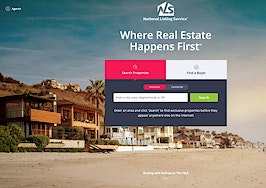 This April, one of Inman’s most popular recurring theme months returns: Back to Basics. All month, real estate professionals from across the country share what’s working for them, how they’ve evolved their systems and tools, and where they’re investing personally and professionally to drive growth in 2022. It’s always smart to go Back to Basics with Inman.
This April, one of Inman’s most popular recurring theme months returns: Back to Basics. All month, real estate professionals from across the country share what’s working for them, how they’ve evolved their systems and tools, and where they’re investing personally and professionally to drive growth in 2022. It’s always smart to go Back to Basics with Inman.
Looking for more advice? Check out Inman’s New Agent Essentials.
Starting out as an agent can be daunting. There is so much to learn and many details to keep track of in addition to everything it takes to get those first deals in place.
Now that you’re your own boss (yikes), it’s important to take a step back and think about the important financial aspects of your new job as an agent. Our ways of working are vastly different than so many other fields out there. Here are five things to consider finance-wise as you navigate the beginning of your career in real estate:
1. Create a full business plan and budget for yourself
As a real estate professional, you are a business owner and thus need a business plan and budget in order to set yourself up for success.
- Are you going to be working part-time? Full-time?
- What days and hours are you going to dedicate to focused work?
- How many listings do you want to maintain?
- What are your primary marketing venues going to be?
Before jumping into your career as an agent, download a business plan template and go through it step by step until you have a fully developed process. This plan will help you clarify your goals and guide you as you move forward.
2. Track your income and expenses
Be sure to look at how much money you have coming in each month versus how much is going out. You can do this by tracking your expenses. There are plenty of apps out there nowadays that will help make this job easier (check out Mint, EveryDollar or NerdWallet).
You’ll want to do this for at least a few months as you get started. The idea is to get a sense of what you’re making and spending on average so that you can eventually use those numbers to create an accurate financial plan that will serve you going forward. It’s important to create a budget that isn’t just aspirational — it also needs to be realistic.
3. Don’t be afraid to ask for referrals from your first few deals
As you build relationships with clients and help them achieve their real estate goals, requesting referrals can help drive your business in a powerful way. Feel empowered to share your availability with them; this doesn’t have to be a long formal conversation — simply mention that you’ve enjoyed working with them and would be happy to assist any friends or family members with their buying or selling needs. Share a few extra business cards with them if that feels right.
Alternatively, asking over email can make the task less daunting. Compose a thoughtful message that expresses your gratitude for their business and how much you value your relationship with them. Then, close with a quick note saying that you’d love to be connected with friends or family who are looking to buy or sell.
4. Fully understand what it means to be self-employed as an agent
Consult a tax or financial expert to get a clear understanding of what being in business for yourself means. What expenses could you potentially write off?
As an independent contractor, you have the opportunity to deduct a multitude of business expenses, so make sure you’re aware and prepared. Keep receipts when you can and stay organized in a spreadsheet. Play it safe your first year; try to put some money away each month in anticipation of tax season, as the amount you owe can be a bit of a surprise.
5. Take advantage of your personal sphere of influence
Don’t let it be a secret that you’ve become a licensed real estate agent. Update your social media accounts — LinkedIn, Instagram, Facebook, etc. — with your news. Start a new professional account if you want to separate your personal and professional social spheres. Yes, it may feel a bit challenging to tout yourself and your skills when you first launch your business, but this will get easier with time.
Be brave, post often, stay in communication with your sphere and advocate for yourself. You are going to be driving your own business by being a proactive and visible resource in people’s lives.
Getting involved in a charitable organization is also a great way to make connections, give back to your community and expand your sphere. Remember, you have value to add to people’s lives and that isn’t something to hide.
These tips take into account both immediate and long-term financial advice for agents who are new to our industry. It’s important to consider these as you begin your journey in real estate. By taking the time to consider your finances and specific financial moves, you’ll set yourself up for success in the long run.
James Harris is a director at The Agency in Los Angeles. Connect with him on Instagram. David Parnes is a director at The Agency in Los Angeles. Connect with him on Instagram.













